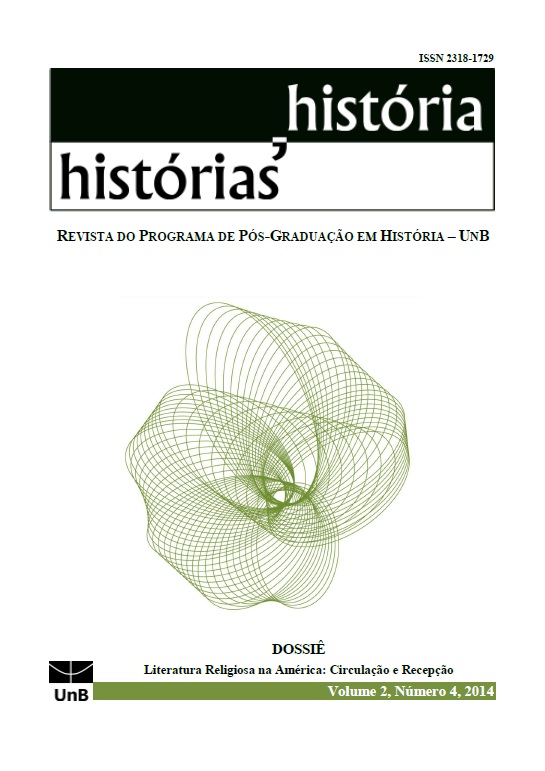Um jesuíta alemão no Brasil meridional conta a história dos Mucker:
o cenário e sua protagonista através da narrativa de Ambrósio Schupp
DOI:
https://doi.org/10.26512/hh.v2i4.10810Keywords:
Ambrósio Schupp, Mucker, Representação, MemóriaAbstract
O estudo analisa a obra Os Muckers, produzida pelo jesuíta alemão Ambrósio Schupp, que chegou no Brasil em 1874, quando o conflito Mucker (1868-1874) chegava ao fim. Investigamos parte das representações construídas pelo jesuíta sobre os Mucker e procuramos entender como essas serviram de base para a produção de uma memória que, durante muitas décadas, procurou evidenciar uma única imagem sobre o Ferrabraz ”“ lugar onde o conflito ocorreu ”“ e também sobre Jacobina, a mulher que liderou os Mucker. Discutimos como esses discursos ”“ fundamentados em uma determinada concepção de ciência e de narrativa histórica ”“ acabaram sendo responsáveis, em grande parte, pela difusão de representações que se solidificaram nas décadas seguintes e imprimiram uma noção “de verdade” sobre o episódio.
Downloads
Downloads
Published
How to Cite
Issue
Section
License
Authors who submit papers with this journal agree to the following terms:
a) Authors retain copyright and grant the journal right of first publication with the work simultaneously licensed under a Creative Commons Attribution License that allows others to share the work with an acknowledgement of the work's authorship and initial publication in this journal.
b) Authors are able to enter into separate, additional contractual arrangements for the non-exclusive distribution of the journal's published version of the work (e.g., post it to an institutional repository or publish it in a book), with an acknowledgement of its initial publication in this journal.
c) Authors are permitted and encouraged to post their work online (e.g., in institutional repositories or on their website) prior to and during the submission process, as it can lead to productive exchanges, as well as earlier and greater citation of published work.




